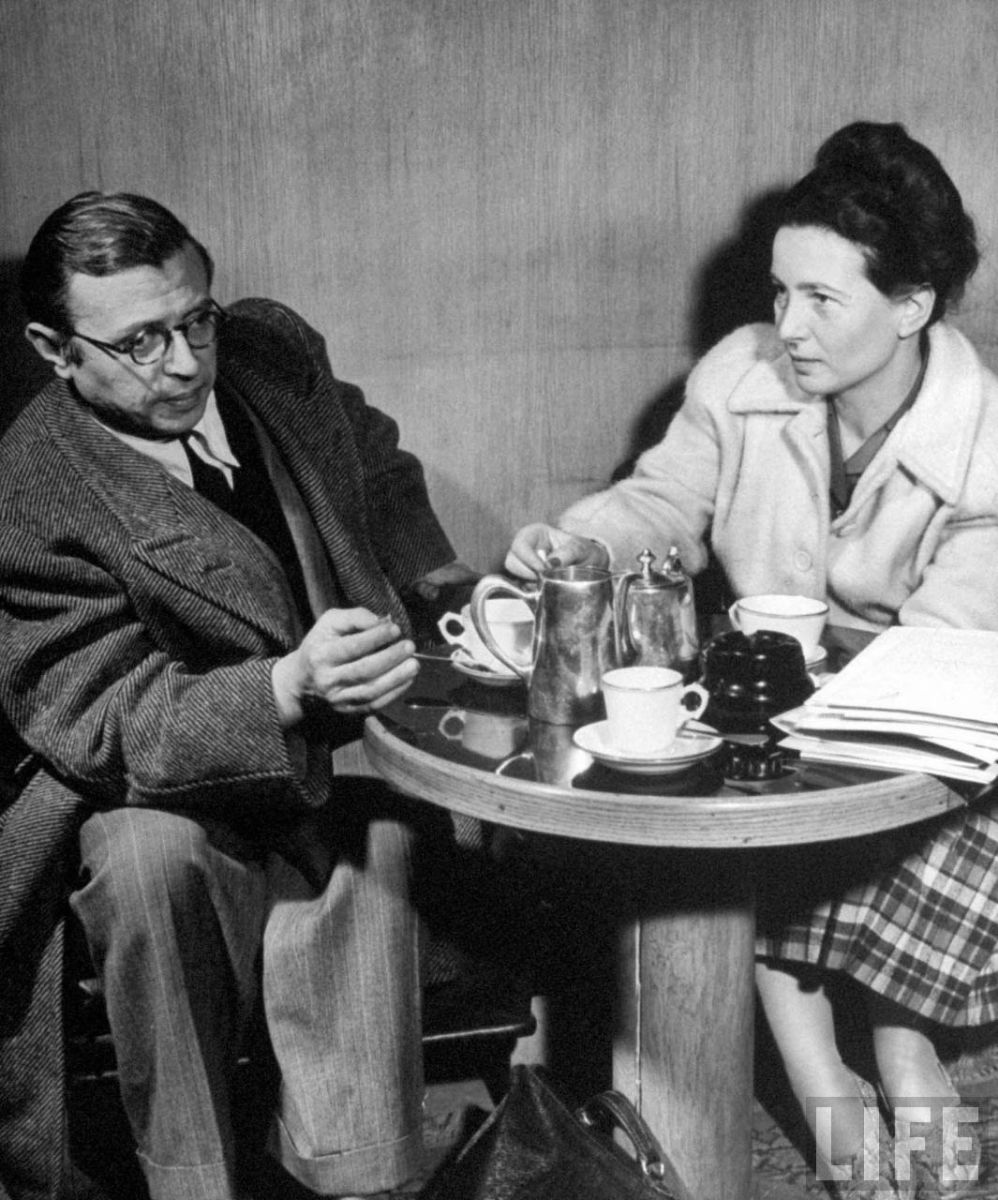THE RETURN OF EXISTENTIALISM…Contrary to popular belief, existentialism did not die out along with student riots, free love, and LSD. In fact in recent years it has made a resurgence in, of all places, psychotherapy and coaching. I am an Existential Psychologist practicing in Brighton & London UK, and here I will outline how existential philosophy can form the basis of an increasingly popular approach to helping professions.Mention the word ‘existential’ and what probably comes to mind is an atmospheric little Parisian cafe along the Left Bank of the Seine, beret-wearing depressives huddled together smoking Gitanes and pontificating about the meaning of life. It’s a stereotype from the sixties associated with the philosophy and the political antics of such notaries as Jean-Paul Sartre and Simone de Beauvoir. What’s less known is that since the late 1980s there has been a resurgence of existentialism in the English-speaking world, most notably within the psychotherapy society of North London. This so-called ‘British School’ of Existential Therapy bases its psychology on the philosophies of Martin Heidegger, Jean-Paul Sartre, Soren Kierkegaard, Friedrich Nietzsche, and other continental philosophers. Though each of these philosophers has something unique to say, they all stress individual responsibility, the freedom to choose our lives, and living in full awareness of the unavoidable limits to life, including of course mortality. What we decide to value and believe in life governs our conduct, allowing us to succeed and feel safe in certain ways while also creating difficulties in other areas of life. Therefore our problems in living originate from conflicts within our outlook on life: For example, the belief “I cannot show any weakness” conflicts with the fact that “I need to be vulnerable in order to have a meaningful relationship”. From this perspective, many psychological problems arise from our deeper assumptions about life or attempts to ignore the limits of life. Depression, stress, anxiety, despair, are probably not ‘illnesses’ per se but are all expressions of conflict and inconsistencies in our beliefs about life. The existential therapist assists the client to actively explore their assumptions, their orientation to life, and to live in greater awareness of the vast range of possibilities open to them. A basic question in existential therapy is ‘why are we not more open to all the experiences life has to offer?’ Existential therapy is much more ‘of the world’ than many other forms of therapy. Like cognitive behavioural therapy, it looks closely at each person’s way of thinking and perceiving, our assumptions and choices. Like psychoanalysis, it looks at our relationships and how these reveal what we’ve made of ourselves. But unlike both of these approaches, existentialism emphasises the unknown in life, the mysteries that exceed all knowledge. For this reason existentialism has often been called the ‘Buddhism of the west’. Exploring how we limit our own perceptions and the ways that we restrict our own freedom can help us to expand beyond a narrow range of possibilities. Every assumption (for example how we think others see us), every response (for example to crisis or boredom), can be reflexively explored. There is meaning in everything. Existential therapy can also incorporate Focusing, a form of experiential self-reflection that includes sensitive awareness of how our bodies can make feelings about what we are living through. This enables the “experiential-existential” therapist to tap into the more-than-logical dimension of human existence. The body offers creative insight into our quandaries and decisions and working with this level of human experience encapsulates many of the tenets of existential philosophy (authenticity, self-responsibility, embodied ethics, not acquiescing to external authority). The way we live everyday life, even the way the client interacts with the therapist in the consulting room can reveal so much. Existential therapists must also, like any human, grapple with how to create meaning in their own lives. In this respect existential therapy accepts that there are no experts on life and that we each must find our own answers to the paradoxes we encounter day to day. Together the therapist and client try to see the big picture, the context within which we act daily. Existential therapy (or coaching sessions) can take the form of lively dialogue and deep insight. As well as the resurgence of existential psychotherapy, and the new field of existential coaching, in the past few years existential philosophy has also become the basis for a new approach to legal mediation. Lawyers are being taught existentialism in order to understand the psychological depths of clients involved in legal conflicts. Also, until recently, an existential therapy team was working with patients and their families in a large teaching hospital in London. Underpinned by existential philosophy, these practices are able to raise some of the paradoxical questions about human living that current culture, even within the psychology professions, tends to gloss over. Greg Madison. revision 2015. |
